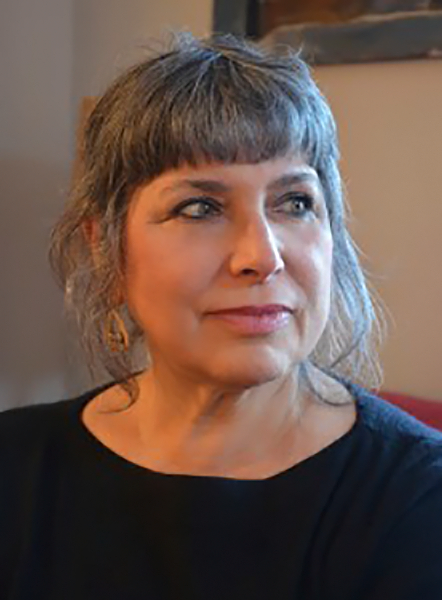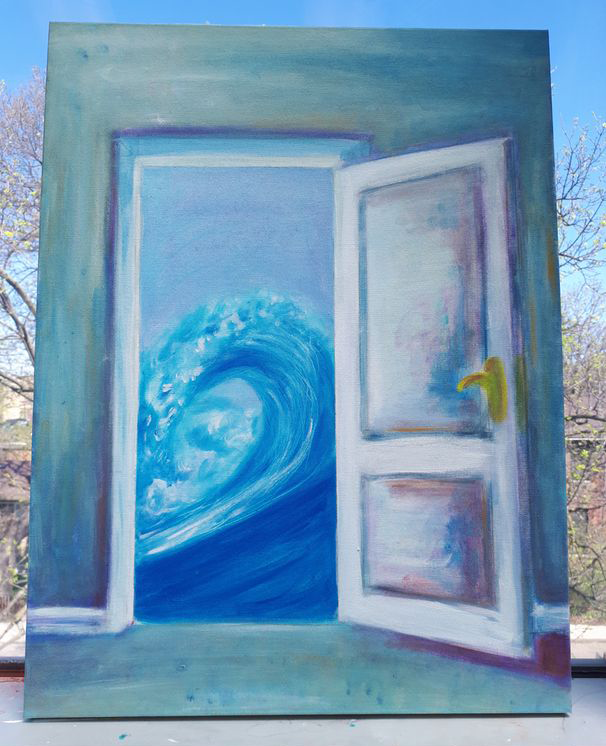Editorial services
I have been editing in various capacities most of my life – on literary magazines, for trade and academic publishers, and as a mentor to poets and fiction writers at the University of Toronto and Toronto Metropolitan University as well as in the larger community. To find out whether we are a good fit, and to get an estimate on what it will cost to get your work edited, send me an email including a 2,000-word writing sample from somewhere in the manuscript where you are struggling and hoping for editorial help. In other words, please do NOT send me something you have rewritten a thousand times! Neither you nor I will get a fair sample of what I can do for you if you try to dazzle me with your most polished work.
In addition, please send me the following important information:
- What kind of manuscript you have written (a one-sentence summary of the kind of project it is, and then a couple of paragraphs summarizing the text)
- The length of your manuscript (in words, not pages)
- The deadline by which you need the work done
- Where you hope to submit your work
- And most importantly, what kind of editing job you require. There are many different kinds of editing, and each takes a different amount of time. Like every editor, I charge on an hourly basis. For a substantive edit, I might only be able to get 1,000 words done in an hour, whereas in a final copy edit I might whiz through 4,000 words.
Here is a useful list of the various kinds of editing jobs and how long you can expect them to take, adapted from fellow editor Arlene Prunkl and the EAC (I guess I’m faster than average, which is lucky for you!):
- Developmental, substantive, structural editing, rewriting — 500 to 1,000 words per hour
- Heavy to medium copy editing, stylistic editing — 500 to 2,000 words per hour
- Medium to light copy editing, stylistic editing — 1,000 to 2,500 words per hour
- Proofreading — 1,500-3,000 words per hour
- Manuscript evaluations — 2,500-4,000 words per hour, plus the time it takes to write up the evaluation.
When I have that information, I will be able to send you an estimate on the job. I will also edit the extract you have sent me, so that you can see what kind of response to expect from me and decide whether I am the right person to work with you.
For a more detailed description of the different kinds of editing please see the Editors Canada website.
References
“When I think of Susan Glickman’s editing skills, I think of those seasoned paleontologists in the field, bent low and patiently over a bit of fossilized bone, revealing what was there all along by brushing away ever so gently all that hides it from itself. “
– Jeffery Donaldson, Missing Link: The Evolution of Metaphor and the Metaphor of Evolution
“Susan Glickman brings to her work a prodigious knowledge of many subjects and a facility with diverse literary forms. When she came on board as editor of Outside the Box I had given up on integrating the elements of this very complex story. She helped me see new possibilities in the manuscript I thought I knew, and weave its threads into a cohesive whole.”
– Maria Meindl, Outside the Box: The Life and Legacy of Mona Gould, the Grandmother I Thought I Knew, winner of the Alison Prentice Award for Women’s History
“Susan Glickman was a dream editor to work with. Always helpful and prompt with a sensitive ear to the nuances of style. Her many fine suggestions and tweaks gave my book of children’s poems, Rosa Rose, just the kind of elegant final going-over it really needed. Highly recommended.”
– Robert Priest, Rosa Rose, and Other Poems
Books I’ve edited for McGill-Queen’s University Press
The Movers: Israeli Art in the Third Millennium, by Noam Gal, 2025.
Ecological Nation: Toward Peace, Order, and Good Government, by Byron Williston, 2025.
Architecture as Communication, by Ross A. Eaman, 2025.
An Exceptional Dialogue, 1925–1948: Nicolas Berdyaev and Jacques Maritain by Bernard Hubert, ed. Ana Siljak, trans. C. Jon Delogu, 2024.
The Rough Poets: Reading Oil-Worker Poetry by Melanie Dennis Unrau, 2024.
Of Lost Cities: The Maghribī Poetic Imagination by Nizar F. Hermes, 2024.
Friendless or Forsaken? Child Emigration from Britain to Canada, 1860–1935, by Ruth Lamont, Eloise Moss, and Charlotte Wildman, 2024.
Mediating Spaces: Literature, Politics, and the Scales of Yugoslav Socialism, 1870-1995, by James M. Robertson, 2024.
Winter Kept Us Warm, by Chris Dupuis, 2023.
The Dillon Era: Douglas Dillon in the Eisenhower, Kennedy, and Johnson Administrations, by Richard Aldous, 2023.
Prophets of Love: The Unlikely Kinship of Leonard Cohen and the Apostle Paul, Matthew Anderson, 2023.
Scapegoat Carnivale’s Tragic Trilogy: Euripides’s Medea, Euripides’s Bacchae, and Sophocles’s Oedipus Tyrannus, ed. Lynn Kozak, 2023.
לעבט Yiddish Lives On: Strategies of Language Transmission, by Rebecca Margolis, 2022.
Dark Days at Noon: The Future of Wildfire, Edward Struzik, 2022.
Patterns of Plague: Changing Ideas about Plague in England and France, 1348–1750, Lori Jones, 2022
Canadian Suburban: Reimagining Space and Place in Postwar English Canadian Fiction, by Cheryl Cowdy, 2021.
The Fate of Canada: F.R. Scott’s Journal of the Royal Commission on Bilingualism and Biculturalism, 1963-1971, Graham Fraser, 2021.
Reading the Diaries of Henry Trent: The Everyday Life of a Canadian Englishman, 1842-1898, J.I. Little, 2021.
Cultivating Community: Women and Agricultural Fairs in Ontario, Jodey Nurse, 2021.
Hall-Dennis and the Road to Utopia: Education and Modernity in Ontario, Josh Cole, 2021.
Canada’s Other Red Scare: Indigenous Protest and Colonial Encounters during the Global Sixties, Scott Rutherford, 2020.
The Right to an Age-Friendly City: Redistribution, Recognition, and Senior Citizen Rights in Urban Spaces, Meghan Joy, 2020.
Ovid and Masculinity in English Renaissance Literature, ed. John S. Garrison and Goran Stanivukovic, 2020.
Who Pays for Canada? Taxes and Fairness, ed. E.A. Heaman and David Tough, 2020.
Geopolitical Amnesia: The Rise of the Right and the Crisis of Liberal Memory, ed. Vibeke Schou Tjalve, 2020.
Taking to the Streets: Crowds, Politics, and the Urban Experience in Mid-Nineteenth-Century Montreal, Dan Horner, 2020.
Violence and Militants: From Ottoman Rebellions to Jihadist Organizations, Baris Cayli, 2019.
The Art of Collectivity: Social Circus and the Cultural Politics of a Post-Neoliberal Vision, ed. Jennifer Beth Spiegel and Benjamin Ortiz Choukroun, 2019.
Grace and Philosophy: Understanding a Gratuitous World, Hunter Brown, 2019.
Connecting the Dots: The Life of an Academic Lawyer, Harry Arthurs, 2019.
Like Everyone Else, But Different: The Paradoxical Success of Canadian Jews, 2nd edition, Morton Weinfeld, 2018.
My Peerless Story: It Begins with the Collar, Alvin Cramer Segal, 2018.
Collapse of a Country: A Diplomat’s Memoir of South Sudan, Nicholas Coghlan, 2017.
Swingback: Getting Along in the World with Harper and Trudeau, Mike Blanchfield, 2017.
The Promise and Challenge of Party Primary Elections: A Comparative Perspective, William Cross, Ofer Kenig, Scott Pruysers, and Gideon Rahat, 2016.
The Flowering of Modern Chinese Verse: Poetry from the Republican Period, trans. Herbert Batt and Sheldon Zitner, introductions by Michel Hockx, 2016.
Alice in Shandehland: Scandal and Scorn in the Edelson/Horwitz Murder Case, Monda Halpern, 2015.
Listening to the Heartbeat of Being: The Arts of Robert Bringhurst, ed. Brent Wood and Mark Dickinson, 2015.
Missing Link: The Evolution of Metaphor and the Metaphor of Evolution, Jeffrey Donaldson, 2015.
Maps and Memes: Redrawing Culture, Place, and Identity in Indigenous Communities, Gwilym Lucas Eades, 2015.
You’re Not Dead until You’re Forgotten: John Dunning, A Memoir, with Bill Brownstein, 2014.
David Lodge and the Tradition of the Modern Novel, J. Russell Perkin, 2014.
Magda and André Trocmé: Resistance Figures, trans. Jo-Anne Elder and ed. Pierre Boismorand, 2014.
The Birth of the New Criticism: Conflict and Conciliation in the Early Work of William Empson, I.A. Richards, Laura Riding and Robert Graves, Donald J. Childs, 2013.
In Time: Short Poems, Long Poems, and the Rhetoric of North American Avant-Gardism, 1963-2008, ed. J. Mark Smith, 2013.
Garden Plots: Canadian Women Writers and Their Literary Gardens, Shelley Boyd, 2013.
Democracy’s Angels: The Work of Women Teachers in Toronto and Vancouver, 1945-1960, Kristina R Llewellyn, 2012.
Bearing Witness: Perspectives on War and Peace from the Arts and Humanities, ed. Sherrill Grace, Patrick Imbert, and Tiffany Johnstone, 2012.
Four Historical Definitions of Architecture, Stephen Parcell, 2012.
Rediscovering Reverence: The Meaning of Faith in a Secular World, Ralph Heintzman, 2011.
Outside the Box: The Life and Legacy of Writer Mona Gould, the Grandmother I Thought I Knew, Maria Meindl, 2011. (Winner Alison Prentice Award for women’s history, 2011)
Georges and Pauline Vanier: Portrait of a Couple, Mary Frances Coady, 2011.
Picturing the Land: Narrating Territories in Canadian Landscape Art, 1500-1950, Marylin J. McKay, 2011.
Working Without Commitments: The Health Effects of Precarious Employment, Wayne Lewchuk, Marlea Clarke, and Alice de Wolff, 2011.
The Empire Within: Postcolonial Thought and Political Activism in Sixties Montreal, Sean Mills, 2010. (Winner First Book Prize Quebec Writers’ Federation Awards 2010; Shortlisted Sir John A. Macdonald Prize Canadian Historical Association, 2011)
Marian and the Major: Marian Engel’s “Elizabeth and the Golden City,” ed. Christl Verduyn, 2010.
Romantic Ecologies and Colonial Cultures in the British-Atlantic World 1770-1850, Kevin Hutchings, 2009.
Woman’s Songs in Ancient Greece, Anne L. Klinck, 2008.
The Geography of Aging: Preparing Communities for the Surge in Seniors, Gerald Hodge, 2008.
Mr Charlotte Bronte: The Life of Arthur Bell Nicholls, Alan H. Adamson, 2008.
Also, here’s an article I wrote for an online blog that might be of interest:
“Editing the First Time Novelist,” The Editors’ Weekly (January 28)

Photo credit: Mark Raynes Roberts
